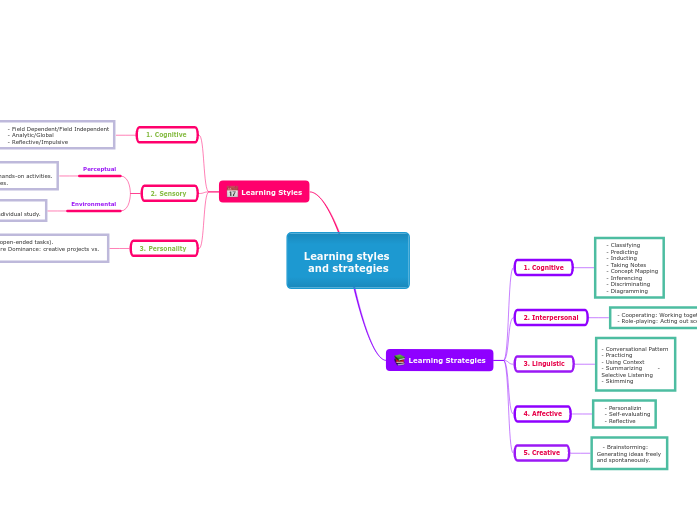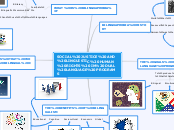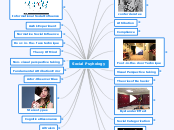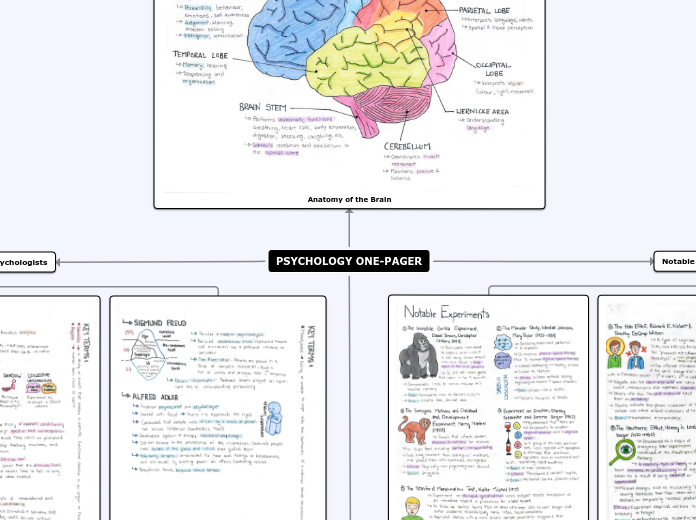Learning styles and strategies
Type in the name of your subject.
Learning Styles
Schedule your course ahead. Knowing all the information will make everything easier.
Personality
- Tolerance of Ambiguity: open-ended tasks).
- Right and Left Hemisphere Dominance: creative projects vs. logical problem-solving.
Sensory
Environmental
- Physical: quiet spaces.
- Sociological: study groups, individual study.
Perceptual
- Visual: diagrams, charts.
- Auditory: lectures, discussions.- Tactile: hands-on activities.
- Kinesthetic: role-playing, physical activities.
Add additional information about this class.
Cognitive
Add the class information for each week.
- Field Dependent/Field Independent
- Analytic/Global
- Reflective/Impulsive
Add class name.
Learning Strategies
Add key information about the books you've read. If you feel it's necessary, you can add a small summary of your readings in the Notes section.
5. Creative
- Brainstorming: Generating ideas freely and spontaneously.
4. Affective
- Personalizin
- Self-evaluating
- Reflective
Name the author.
3. Linguistic
- Conversational Pattern - Practicing
- Using Context
- Summarizing - Selective Listening
- Skimming
2. Interpersonal
- Cooperating: Working together with others.
- Role-playing: Acting out scenarios to understand concepts.
1. Cognitive
- Classifying
- Predicting
- Inducting
- Taking Notes
- Concept Mapping
- Inferencing
- Discriminating
- Diagramming
Add summary of the content of a book









